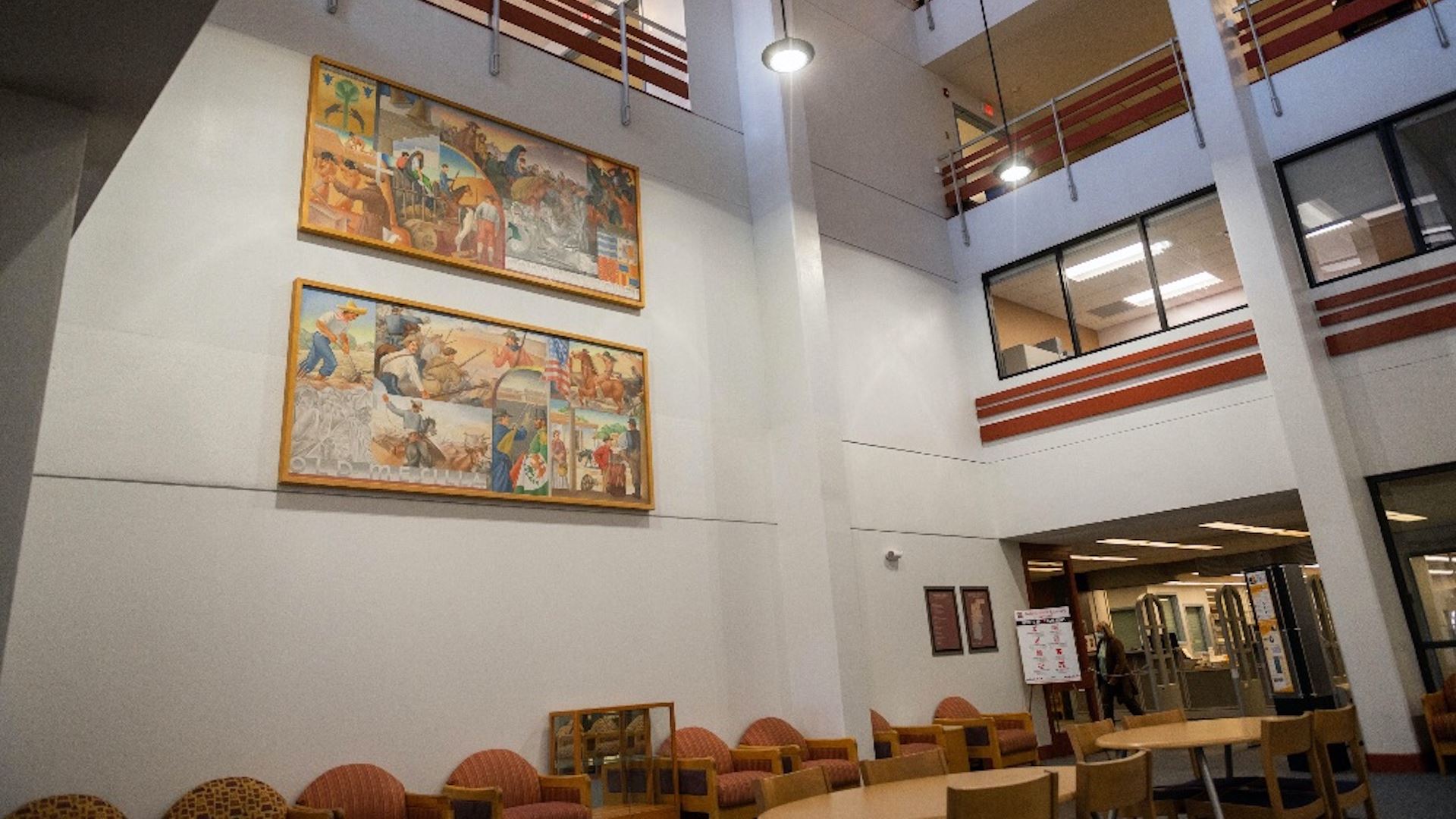When the COVID-19 pandemic reached the U.S. in early 2020, it didn’t take long for many to realize society was living through a historic moment. Archivists and historians at the New Mexico State University Library recognized the value in collecting the stories of how the NMSU community was affected, so future generations could see them and get an understanding of how we adjusted to the new normal.
The announcement of a statewide stay-at-home order in mid-March 2020 prompted archivists at the NMSU Library to quickly begin exploring the idea of creating an archive specifically to obtain digital COVID-19 documentation on a local level.
“Our desire was to capture how the NMSU community dealt with the pandemic and to have a record that people could look back on and see how the pandemic played out in Las Cruces, Doña Ana County, the Mesilla Valley, and southern New Mexico,” said Dylan McDonald, political collections archivist and special collections librarian.
Toward the end of April 2020, the Archives and Special Collections department launched the blog “Open Stacks,” which became a platform to announce newsand upcoming events, including the creation of the COVID-19 archive. Through the website, people could upload their COVID-19 experiences and documentation, while also providing a brief description of the submission.
“While we did not limit who could submit, we knew our target audience was New Mexicans and people living in the Borderlands,” McDonald said.
Two years later, the archive holds 38 submissions which range from photos and journal entries to poetry, music videos, and documentaries. Many of these are from NMSU students, including Annie Ersinghaus, a junior studying digital filmmaking and journalism.
“It was so weird to see people with masks and I thought, ‘I want to document this weird feeling of seeing people in a store wearing masks.’ It changed our society,” Ersinghaus said. “I submitted my COVID-19 documentary called ‘Uncharted Waters’ to the NMSU Library COVID-19 archive, and I thought it would be cool just to have it there to have other people view it, as well, who are wondering what we were thinking about back then, and how we were viewing things.”
The 25-minute documentary creatively explains what most of the public knew about the virus at the time, and how loved ones were handling the sudden changes. Through this project, Ersinghaus shared that this was not only a time of discovering new hobbies and skills to amplify her passion of filmmaking, but finding beauty and light in what felt like darkness.
“I finished the documentary with a poem, and that poem was talking about getting closer to the people you are with, and closer to yourself,” she said. “I really feel like we can take almost anything as humans and see the good and bad, and I think it’s our job to see the good of things. To use that time where we couldn’t see many people, and dive into ourselves. That was the main thing that I learned, and since then, I’ve changed a lot through the whole process of COVID-19 happening.”
When looking back at events, places, or historic topics, McDonald said many students of history are surprised by how easy it is to make a connection and feel empathy for the people in the past, especially when both the past and present are confronted by similar challenges.
“I’m hoping in the future that we’ll have students looking back at what happened in 2020, and that they can relate to some of the feelings that NMSU students at the time were feeling,” he explained. “Issues of social isolation, feeling uneasy about the future, being afraid for family members and friends, and even being unsure about celebrating graduation.”
Although two years have passed, COVID-19 has not disappeared from our world. However, new practices and pieces of information have guided us to this point of living a “new normal”: a new way of living life amid a pandemic, and an opportunity to continue sharing more stories for future generations.
“These contributions to the COVID-19 archive are really personal things to share with the public. That takes a lot of guts. In most of these submissions, people are really opening themselves up. They’re describing their emotions and fears,” McDonald said. “So, thank you to those who were courageous enough to submit to the library and we hope others may be inspired by that courage and continue to participate and tell their stories.”
For more information about the NMSU Library COVID-19 archive or how to submit, visit https://nmsu.libguides.com/asc/openstacks/posts/COVID-19 or contact McDonald at dylanmcd@nmsu.edu.
To view Ersinghaus’ documentary, visit UNCHARTED WATERS a COVID-19Mini Documentary // Annie Ersinghaus.
NMSU Library reflects on items received in COVID-19 archive at two-year mark
Release Date: 02 May 2022

